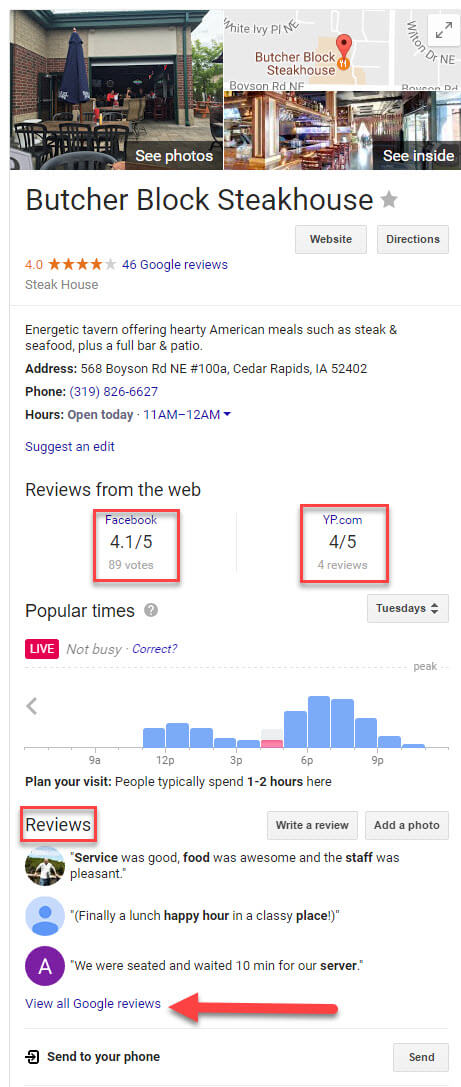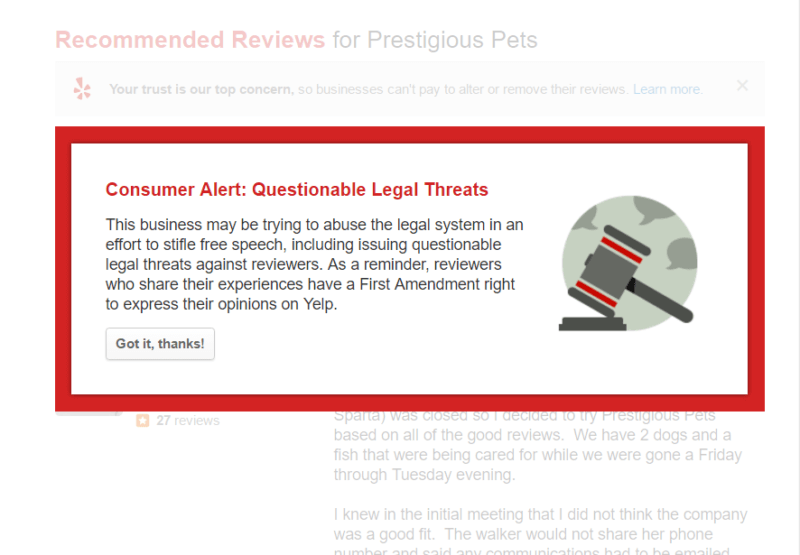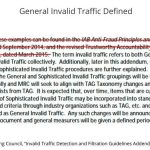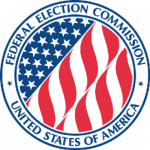What does the Consumer Review Fairness Act mean for consumers and online reviews?
Columnist Sherry Bonelli discusses the impact that newly signed legislation may have on local business owners and review sites.

Online reviews have steadily become a part of our everyday online world and an integral part of consumers’ buying process. Whether you’re proactively seeking out reviews for a product/service or responding to a Facebook friend’s post asking for provider recommendations, online reviews surround us.
Reviews and star ratings show up in search engine results pages (in both organic listings and paid ads), and Google recently started showing third-party reviews in a company’s Google Knowledge Panel. Bottom line: You can’t avoid reviews, because they’re everywhere!

Additionally, research has shown that people use online reviews to make purchasing decisions. According to a recent consumer review survey by BrightLocal (disclaimer: my employer):
- 84% of people trust online reviews as much as a personal recommendation.
- 74% of consumers say that positive reviews make them trust a local business more.
- 91% of consumers regularly or occasionally read online reviews.
- 60% of consumers stated that negative reviews make them not want to use a local business.
With stats like these, many local companies are finally recognizing the importance of building up a solid online reputation management strategy. However, in the quest to achieve 100 percent five-star reviews, some businesses have unfortunately gone overboard and crossed the line.
Terms of service: beware of the difficult-to-find online review “gotcha”
You know those terms of service agreements that you never read? They’re usually found in the footer of a website or buried in some obscure place where you wouldn’t think to look. Over the past year, some unhappy consumers were hit with lawsuits or charged fees after posting negative online reviews about a business. Why?
In an attempt to keep their online reviews pristine, some unscrupulous businesses started adding “gag orders” or “non-disparagement” clauses to their contracts or terms of service agreements, blatantly trying to silence unhappy customers by penalizing them if they leave negative online reviews or say bad things about them through social media channels. Most of these consumers never even knew they agreed to such a policy.
These clauses typically state that customers are not allowed to make any disparaging or negative comments about a business, product or service on social media or review websites like Yelp or TripAdvisor; those that violate these terms will be subject to a lawsuit or other fines. There have even been reports that some people were fined for just threatening to leave a bad review online.
Clauses like these essentially prevent consumers from sharing honest opinions and feedback about the products or services they received from a business. Here are just a few crazy examples:
- A pet sitter sued a couple in Plano, TX, because they left a negative online Yelp review about the pet sitter’s pricing policy and how their fish bowl was cloudy (i.e., the fish were overfed) when they returned from their trip.
- One apartment complex put a clause in their lease agreement stating that any photographs of the apartments are the property of the apartment management company and that renters would be fined/sued if they left negative reviews about the apartments online.
- A Florida wedding vendor had a clause in their agreement that makes couples agree that they will never make or encourage any disparaging comments about their company in any form, verbal or written.
The US Government to the rescue
This issue caught the attention of New Jersey Congressman Leonard Lance, Vice Chair of the Commerce, Manufacturing and Trade Subcommittee. He became concerned about protecting consumers who posted honest feedback online.
Like most of us, Lance feels that online reviews and ratings are critical in the 21st century and that consumers should be able to post, comment and tweet their honest and accurate reviews without the fear of being punished. So Congressman Lance got busy.
On December 2, 2016, Congressman Leonard Lance and US House Speaker Paul Ryan signed Lance’s Consumer Review Fairness Act. This legislation allows Americans to exercise their First Amendment rights regarding consumer experiences without fear of retribution.
This consumer protection legislation passed both the US House and Senate and is now headed to President Obama.
Update: President Obama signed the Consumer Review Fairness Act into law on December 15, 2016.

According to the Congressman’s Press Release:
In the 21st century economy it is easier than ever for consumers to make informed choices on which business or service to use by consulting websites and apps that publish crowdsourced reviews of local businesses and restaurants. Consumer reviews are a powerful informational tool because consumers place a high value on the truthful reviews of other consumers. Some businesses have become frustrated by online criticism and some have employed a questionable legal remedy known as a “non-disparagement” clause to retaliate against consumers. These [clauses] are often buried in fine print. The Consumer Review Fairness Act would void any non-disparagement clauses in consumer contracts. It also would ensure companies are still able to remove false and defamatory reviews.
What does this mean for online review sites and digital marketing agencies?
Online review companies like TripAdvisor and Yelp seem to be on board with this new legislation. Yelp has even begun to post warnings on a business’s Yelp listing when they’re aware that the business owner is litigious and could bring a lawsuit or fine a person if they leave a negative review about their business.

For digital marketers, this is all good news. We can continue to talk with our clients (or potential clients) about the importance of having a professional agency manage and market their online reviews — the good ones and the bad ones.
What do you think? Is this a good law to pass? Leave your feedback on social media!
[Article on Search Engine Land.]
Some opinions expressed in this article may be those of a guest author and not necessarily Marketing Land. Staff authors are listed here.
Marketing Land – Internet Marketing News, Strategies & Tips
(43)














